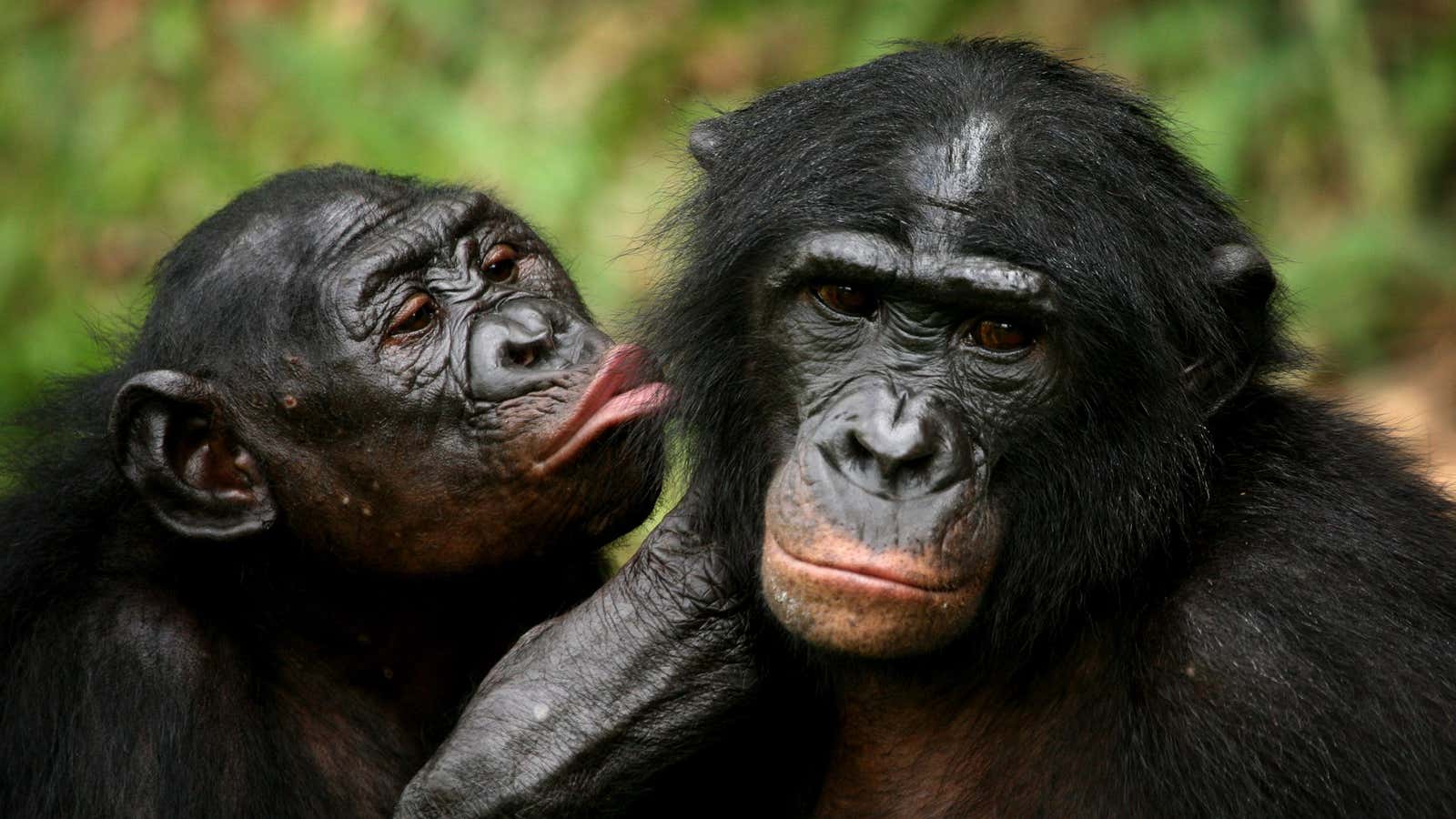Scientists looking to understand the evolutionary roots of human behavior have frequently looked to bonobos, the great ape native to the Democratic Republic of Congo. From a human perspective, bonobos appear a peaceful species. They live in matriarchal, highly-cooperative groups, share food and mates with outsiders, and often resolve conflicts through sex instead of aggression.
But in a recent study in the journal Current Biology, a pair of researchers from Duke University found that bonobos showed a surprising attraction to others they saw acting in selfish or hurtful ways. The findings suggest that bonobos are drawn to high-status individuals—and, like humans, may see boorish behavior as evidence of power.
Evolutionary anthropologists Christopher Krupenye and Brian Hare showed a group of 24 bonobos a series of videos depicting colorful animated figures with googly eyes—similar to the type of cartoon a tired parent might play to distract a toddler for a few minutes. (You can watch the videos here).
In some of the videos the figures behaved cooperatively: helping push each other up a hill, for example, or taking turns sharing a circle on the ground. In others, the figures were undeniably antagonistic toward each other, knocking one another out of the circle or shoving a fellow cartoon figure downhill.
In a subsequent experiment, the bonobos then watched as a human researcher played with a toy. When the researcher dropped the toy, two assistants approached him. One picked up the toy and tried to return it. The other snatched it away.
In similar experiments, human babies as young as three months have shown a marked preference for people acting in cooperative, prosocial ways. The bonobos, on the other hand, were drawn to the jerks. When presented with pieces of apples decorated with cut-out figures of the shapes they’d just watched, the bonobos chose those resembling the more aggressive shapes. When the two human assistants on the second experiment approached the apes with food, they preferred to take the snack from the person they’d just watched steal a toy.
The reason for their preference, scientists propose, is that bonobos interpret selfish behavior as evidence of high status—and if an ape (or human, or google-eyed shape) is of high status, it’s better to be her ally than her foe.
Bonobos are highly sensitive to status. If a lower-status female bonobo is being threatened by a male, a higher-ranking female will team up with the subordinate to chase the threat away. Females also prefer high-status males as mates.
When apes are observing behavior like a toy being snatched away or one cartoon figure helping another, it is possible the animals understand not only what the figures are doing, but why they are doing it. Krupenye’s previous research examined the possibility that apes, in addition to humans, possess what’s known as theory of mind—the ability to imagine others’ thoughts and feelings.
Humans’ ability to understand another’s internal world as distinct from one’s own was long thought to be the thing that separated us from our primate kin. This latest study is just one small piece of evidence that we may not be as different from fellow apes as we think we are.
